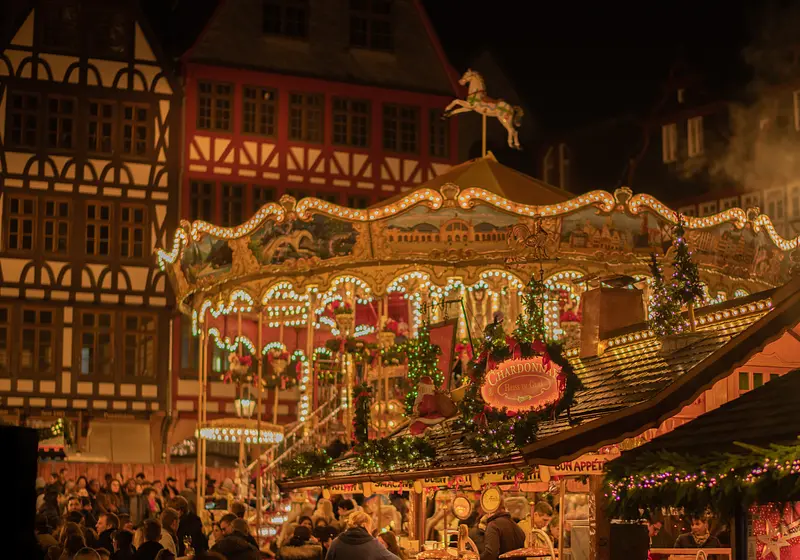Growing up, I never understood why I would hear commercials about Christmas deals at the end of August and how the second after Halloween ends, the skulls and ghouls are shoved in the attic and replaced with Christmas ornaments, red, green, white, and carols. It's like all the other holidays, such as Halloween and Thanksgiving, which have essentially turned into "filler" holidays, only existing to everyone, held over until Christmas. I'm all for the jolly holiday, but the phenomenon that results in the hype for Christmas occurring sooner every year needs to be studied.
Everyone I've talked to is fine with this because "Yay! Christmas!" but clearly, there has to be a specific reason why it feels like Christmas is taking over our lives, right?
Let us slide into your dms 🥰
Get notified of top trending articles like this one every week! (we won't spam you)What is the "Christmas Creep"?
Before we can understand why we hear about Christmas so soon, we have to give it an official title. Cue the name "Christmas Creep." The term "Christmas creep" refers to the phenomenon where the holiday season, especially Christmas-related promotions, decorations, and merchandise, begins earlier and earlier each year.
It's the gradual expansion of Christmas-related activities and commercialization well before the actual holiday season begins. For instance, you might notice Christmas decorations, advertisements, and sales starting as early as October or even September, sometimes much before the traditional holiday shopping season.
Take the Quiz: Which Indian city is the perfect holiday spot for you!?
Let's match you with an Indian city that you would love!
Why does the Christmas Countdown get earlier every year?
Capitalism and consumerism actually play a big role in why Christmas feels like it's coming earlier (surprise, surprise). Stores tend to prepare for Christmas earlier and earlier, primarily for commercial reasons. The holiday season, especially Christmas, represents a significant portion of annual retail sales.
Extending the period for holiday shopping allows businesses to capture consumer spending over a more extended period. By starting promotions, sales, and decorations earlier, retailers aim to attract customers who might be eager to start their holiday shopping sooner or take advantage of early deals. This extended period also provides retailers with a competitive edge, allowing them to spread out demand, manage inventory better, and potentially increase profits. Moreover, the early onset of Christmas-related marketing can create a sense of anticipation and excitement among consumers, driving them to purchase ahead of time. It's a strategic move by businesses to maximize sales and maintain a competitive edge in the market.
It doesn't help when people (like us) buy into this when we choose to purchase and put up Christmas decorations sooner and sooner. People often start decorating for Christmas earlier for various reasons. Some do it out of excitement and anticipation for the holiday season, wanting to extend the festive cheer for as long as possible.
For others, it's about practicality and convenience; putting up decorations earlier allows them to spread out the tasks over time, avoiding a last-minute rush. Additionally, with social media and the desire to create picturesque moments, there's a trend to start decorating earlier to share those cozy, festive vibes with friends and followers. It's astonishing to see the number of TikToks I have about everyone having their Christmas tree and red ribbon blowing up before Thanksgiving has passed. This inadvertently fuels the general atmosphere of the holiday season. As more homes display decorations ahead of time, it creates a visual cue that influences the broader community and even retailers. Seeing these decorations prompts others to get into the holiday spirit sooner, making it feel like Christmas is coming earlier each year. This, in turn, reinforces the cycle of the Christmas creep, as both individuals and businesses collectively contribute to the earlier onset of the holiday season.
This concept goes all the way back to the late 20th century. In the 1990s and early 2000s, there was a noticeable shift in marketing tactics. Retailers started promoting Christmas-related items earlier, well before Thanksgiving.
They recognized that starting holiday promotions sooner increased consumer spending. This early marketing was propelled by the desire to capture shoppers' attention before competitors and encourage them to start their holiday purchases earlier. It also catered to consumers' growing interest in planning and purchasing ahead of time.As online shopping grew in popularity, retailers found it beneficial to start their holiday promotions earlier to compete in the digital space. The convenience of online shopping allowed people to shop whenever they wanted, prompting retailers to start their sales and promotions earlier to attract these early bird shoppers.
Why should we care?
The "Christmas creep" does have its downsides. One major issue is that it can dilute the uniqueness and anticipation of the holiday season. When Christmas promotions and decorations start too early, it takes away from the special feeling that comes with the actual holiday period.
It's like playing your favorite song on repeat months before a concert—it loses its magic by the time the event finally arrives. This extended period of holiday marketing can also lead to what some might call "holiday fatigue," where people get tired of the constant bombardment of Christmas-themed advertisements and decorations, potentially making them less enthusiastic about the actual holiday when it arrives. Additionally, for some, the commercialization and early start of Christmas can overshadow other important celebrations and events happening around the same time, diminishing their significance. As happy as I am for Mariah Carey's yearly defrost and the Christmas spirit, it still doesn't change that there should be more of a balance between celebrating the holidays and having it be the only thing we focus on.











